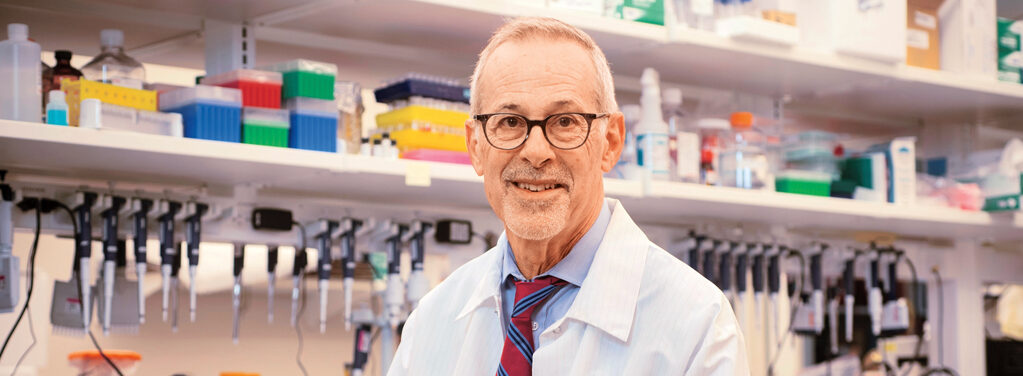
Good Ventures infuses $4.5 million into potential Alzheimer’s tool
Good Ventures’ tremendous generosity to the Brigham over the course of two major grant awards illustrates their deep desire to reduce the human suffering caused by Alzheimer’s disease.
Alzheimer’s disease is one of the most debilitating medical conditions in the United States. Doctors can diagnose the neurodegenerative disease using a combination of methods once symptoms begin but cannot yet diagnose it before symptoms appear. Another challenge is treatment. The research community has undertaken dozens of clinical trials for Alzheimer’s vaccines and therapies, which have so far yielded only marginal success in slowing disease progression.
With a $4.5 million grant from the Good Ventures Foundation, the Brigham seeks to address these clinical gaps by developing a blood-based tool that detects Alzheimer’s early and monitors the effectiveness of promising treatment options.
“Because the brain is a very difficult organ to access, we cannot easily sample brain fluid or find drugs that can penetrate the blood-brain barrier,” explains David Walt, PhD, a professor in the Brigham’s Department of Pathology and a renowned researcher leading the project. “This lack of access makes diagnosing and treating brain diseases one of the great challenges in medicine.”
In working toward overcoming this challenge, a 2018 Good Ventures grant allowed Walt and his colleagues to develop a set of technologies that can isolate nanoscopic structures called extracellular vesicles (EVs). Released by almost all cells in the body, these tiny structures contain the contents of the cells they came from—and Walt’s team is particularly interested in EVs that travel from the brain to the bloodstream.
The research project’s next phase, fueled by Good Ventures’ latest grant to the hospital, will use Walt’s ultrasensitive technologies to pinpoint cells inside the brain that are originating EVs. This could help diagnose Alzheimer’s early and examine the performance of drug treatments.
Alzheimer’s is one of several major medical and global issues that Good Ventures confronts. The philanthropic foundation was co-founded by Cari Tuna, a former Wall Street Journal reporter, and her husband, Dustin Moskovitz, a co-founder of Facebook and Asana, with the mission to help humanity thrive.
“Good Ventures’ tremendous generosity to the Brigham over the course of two major grant awards illustrates their deep desire to reduce the human suffering caused by Alzheimer’s disease,” adds Walt. “The breadth and depth of their philanthropy is profound.”